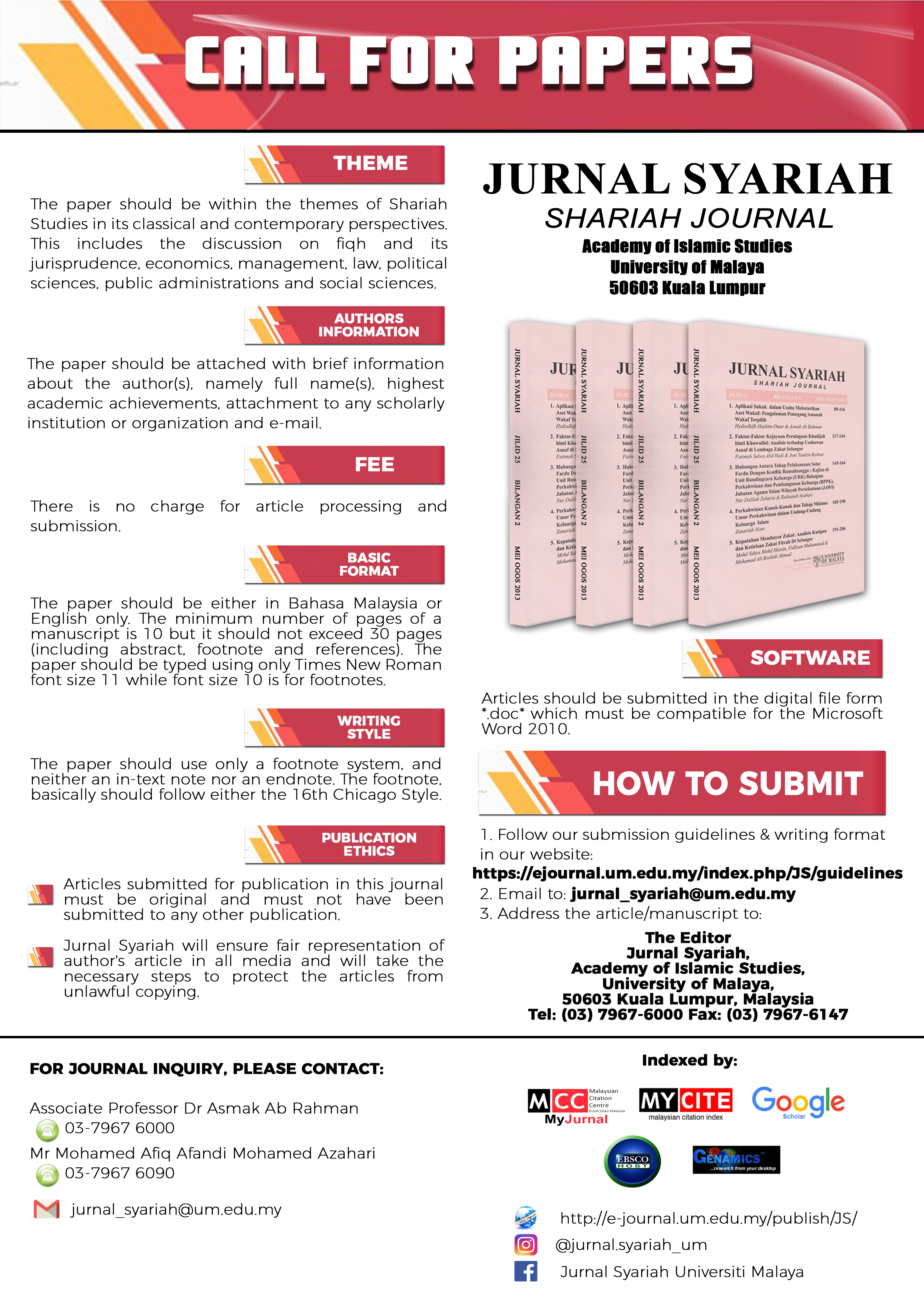THE IMBROGLIO ON TAX REFORMS TO FACILITATE ISLAMIC FINANCE IN NIGERIA: A CONTENDING BUT NOT CONTENTIOUS CONSTITUTIONAL ISSUE
DOI:
https://doi.org/10.22452/js.vol25no3.6Keywords:
Islamic finance, tax, religion, constitutionality, imbroglioAbstract
As Islamic Finance is developing in Nigeria, the urge to facilitate its taxability by the Nigerian government has also been gathering momentum. While some are in support of this idea, others contend that section 10 of the Constitution of the Federal Republic of Nigeria abhors state religion and by extension the tax reform to facilitate Islamic Finance, hence the imbroglio. This paper examines whether it is constitutionally possible for Nigeria to implement tax reforms to facilitate faith based financial transactions. This study considers the theoretical considerations of taxes and religion and assesses the implications of Islamic finance in light of Nigerian constitutional provisions. The researchers conclude that even though the issue of tax reform to facilitate Islamic finance is contending, it isn’t contentious. The reason for holding this position is that there are various sections in the Nigerian Constitution that allows for freedom of religion and Islamic cultures which include the Islamic financial system. However, for such reform to be viable, this paper recommends that it should be carried out in line with constitutional reforms and amendments without infringing upon the rights of other religious believers in Nigeria.
Downloads
Downloads
Published
How to Cite
Issue
Section
License

This work is licensed under a Creative Commons Attribution-NonCommercial 4.0 International License.
COPYRIGHT: All rights reserved. Not allowed to be reproduced any part of articles and contents of this journal in any form or by any way, whether electronic, mechanical, photocopying, recording or otherwise without permission in writing from the Chief Editor, Jurnal Syariah.



















